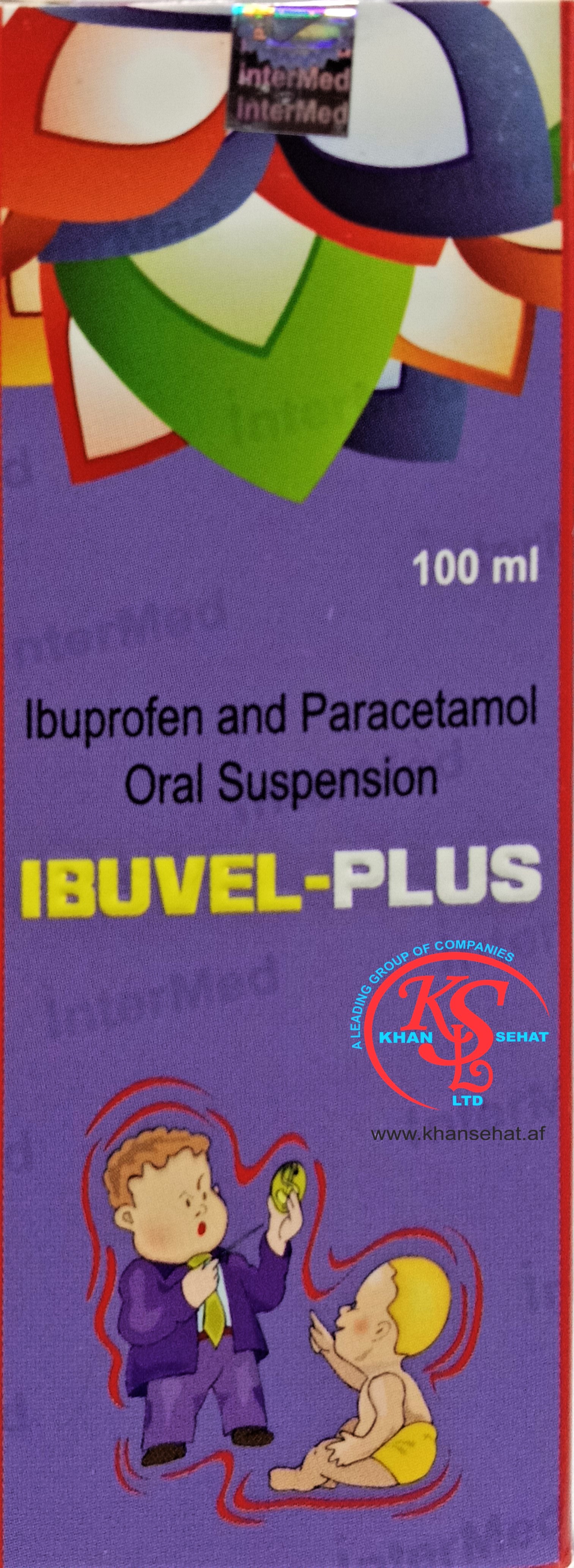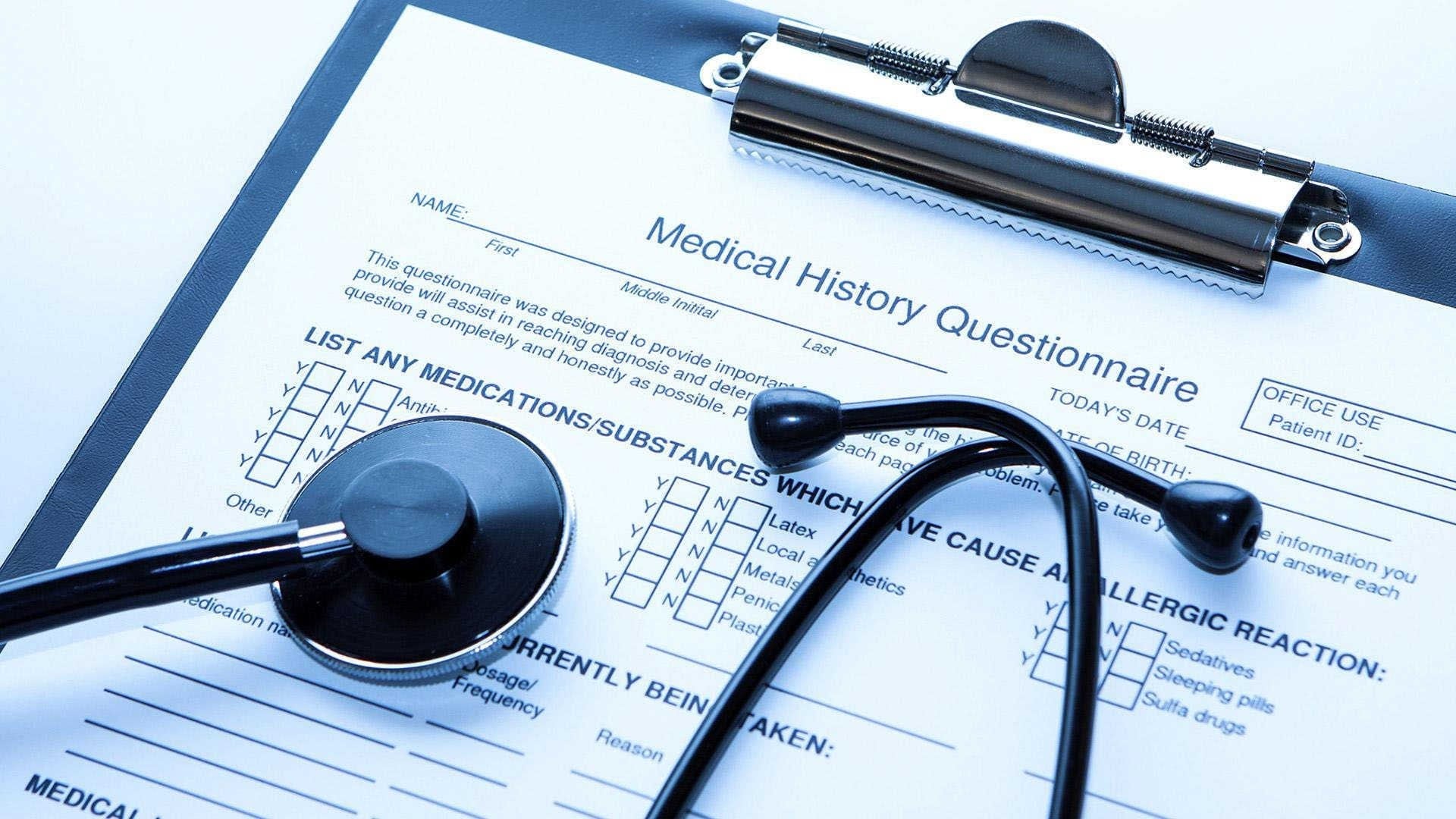PRESENTATION NO 001: IBUVEL-PLUS (Ibuprofen BP 200mg + Paracetamol BP 120mg/5ml Suspension)

IBUVEL-PLUS
Ibuprofen BP 200mg + Paracetamol BP 120mg/5ml Suspension
ANTIPYRETIC
- An antipyretic from anti- 'against' and pyretic 'feverish‘, is a substance that reduces fever.
- The body then works to lower the temperature.
- Which results in a reduction in fever.
ANALGESIC
- An analgesic or painkiller is any member of the group of drugs used to achieve analgesia, relief from pain.
- Analgesic drugs act in various ways on the peripheral and central nervous systems.
- They are distinct from anesthetics, which temporarily affect.
- In some instances completely eliminate, sensation.
NSAIDs
- NSAIDs non steroidal anti-inflammatory drugs are a drug class that groups together drugs that provide analgesic (pain-killing) and antipyretic (fever-reducing) effects and in higher doses, anti-inflammatory effects.
Anti-inflammatory
- A drug or substance that reduces inflammation (redness, swelling, and pain) in the body.
- Anti-inflammatory agents block certain substances in the body that cause inflammation.
MECHANISM OF ACTION
ANALGESIC
- Centrally.
- Inhibition the COX 1-2 (cyclooxygenase) enzymes in the CNS.
- Periperally.
- Anti inflammatory action.
ANTIPYRETIC
- Centrally.
- Inhibition the COX 1-2 (cyclooxygenase) enzymes in the CNS.
- Inhibition of interleukin-1
IBUPROFEN Bp 200mg/5ml Suspension
- Ibuprofen is a non steroidal anti-inflammatory drug (NSAID).
- It works by reducing hormones that cause inflammation and pain in the body.
- Your child should start to feel better about 20 to 30 minutes after taking ibuprofen.
Ibuprofen syrup dosages for children
- 3 to 5 months (weighing more than 5kg) 2.5ml Max 3 times in 24 hours.
- 6 to 11 months 2.5ml Max 3 to 4 times in 24 hours.
- 1 to 3 years 5ml Max 3 times in 24 hours.
- 4 to 6 years 7.5ml Max 3 times in 24 hours
- 7 to 9 years 10ml Max 3 times in 24 hours
USES
- Ibuprofen is used to reduce fever and treat pain or inflammation caused by many conditions such as headache, toothache, back pain, arthritis, menstrual cramps, or minor injury.
- It is also used to reduce fever and to relieve minor aches and pain due to the common cold or flu.
SIDE EFFECTS
- Upset stomach, nausea, vomiting, headache, diarrhea, constipation, dizziness, or drowsiness may occur.
- If any of these effects persist or worsen, tell your doctor or pharmacist promptly.
- This medication may raise your blood pressure. Check your blood pressure regularly and tell your doctor if the results are high.
- This drug may rarely cause serious (possibly fatal) liver disease.
- Get medical help right away if you have any symptoms of liver damage, including: dark urine, persistent nausea/vomiting/loss of appetite, stomach/abdominal pain, yellowing eyes/skin
PRECAUTIONS
- Before taking ibuprofen, tell your doctor or pharmacist if you are allergic to it; or to aspirin or other NSAIDs.
- This product may contain inactive ingredients, which can cause allergic reactions or other problems.
- Kidney problems can sometimes occur with the use of NSAID medications, including ibuprofen.
INTERACTIONS
- This medication may increase the risk of bleeding when taken with other drugs that also may cause bleeding.
- Examples include anti-platelet drugs such as clopidogrel, "blood thinners" such as dabigatran/enoxaparin/warfarin
, among others.
OVERDOSE
- Symptoms of overdose may include: severe stomach pain, trouble breathing, extreme drowsiness.
- Paracetamol BP 120mg/5ml Suspension
- Paracetamol, also known as acetaminophen, is a medication used to treat pain and fever.
- It is typically used for mild to moderate pain relief.
- Evidence is mixed for its use to relieve fever in children.
- It is often sold in combination with other medications, such as in many cold medications.
Pediatric Dose for Fever
- Neonates (premature neonates born at least 32 weeks gestational age up to 28 days chronological age): 12.5 mg/kg every 6 hours.
- Infants (29 days to 2 years old): 15 mg/kg every 6 hours.
- 2 to 12 years: 12.5 mg/kg every 4 hours OR 15 mg/kg every 6 hours.
USES
- This drug is used to treat mild to moderate pain (from headaches, menstrual periods, toothaches, backaches, osteoarthritis, or cold/flu aches and pains) and to reduce fever.
SIDE EFFECTS
- A very serious allergic reaction to this drug is rare.
- However, get medical help right away if you notice any symptoms of a serious allergic reaction, including: rash, itching/swelling (especially of the face/tongue/throat), severe dizziness, trouble breathing.
PRECAUTIONS
- Liquid products, chewable tablets, or dissolving/effervescent tablets may contain sugar or aspartame.
- Caution is advised if you have diabetes, phenylketonuria (PKU), or any other condition that requires you to limit/avoid these substances in your diet.
INTERACTIONS
- A product that may interact with this drug is: ketoconazole.
OVERDOSE
- If someone has overdosed and has serious symptoms such as passing out or trouble breathing.
- Symptoms of overdose may include: nausea, vomiting, loss of appetite, sweating, stomach/abdominal pain, extreme tiredness, yellowing eyes/skin, dark urine.
Manufactured By: interMed
Marketed By: KHAN SEHAT LTD
Presented By: Dr. Anwarullah Ayarkhail







